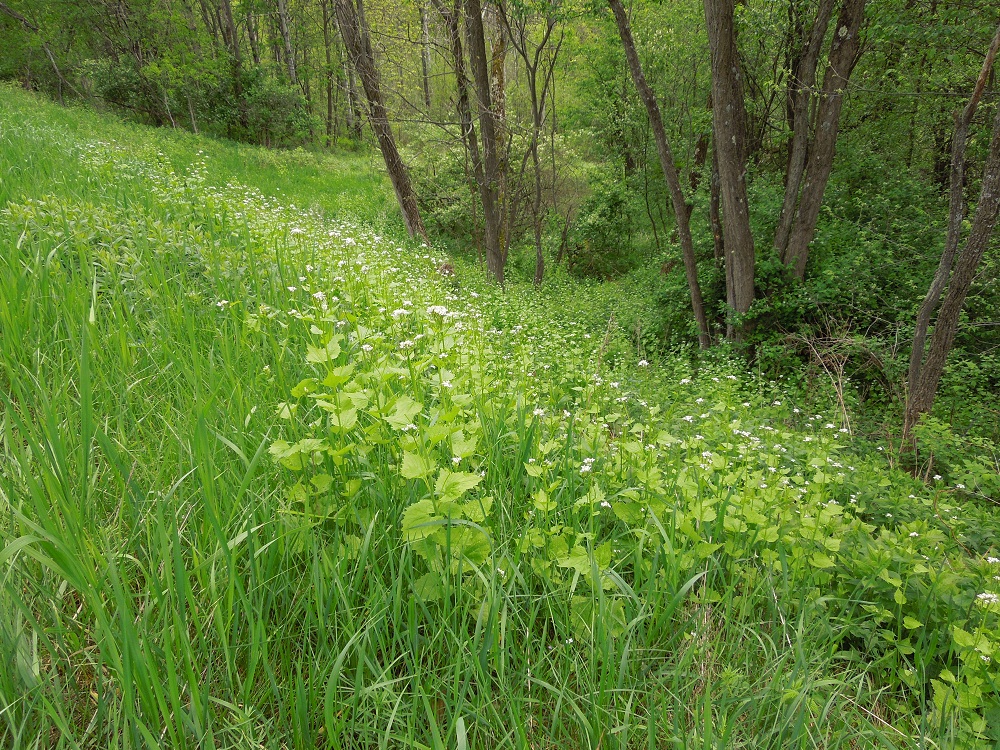Garlic Mustard
Common Name: Garlic mustard
Scientific Name: Alliaria petiolata
Origin: Europe
Description
Garlic mustard is a biennial herb and grows as a rosette of kidney shaped leaves in the first year. The second-year plant can grow multiple stems up to four feet with triangular, sharply-toothed leaves. In May, four-petaled, white flowers grow in clusters at the top of the stem. Garlic mustard produces a multitude of seeds, which can remain viable for seven years or more.
Habitat
Garlic mustard thrives in deciduous forests and partially shaded, moist habitats.
Threat
With an early spring jump on native plants, this invader dominates forest understories. It releases chemicals harmful to soil fungus important to native trees.
Management
Plants can be pulled or cut in late spring when flowers are in bloom. Monitor the site in the fall and pull any emerging first-year plants. Repeat every year until the seedbank has been depleted. Selective herbicides can also be used effectively for larger infestations.
Distribution: View Map
Garlic mustard is present in the FL-PRISM.








